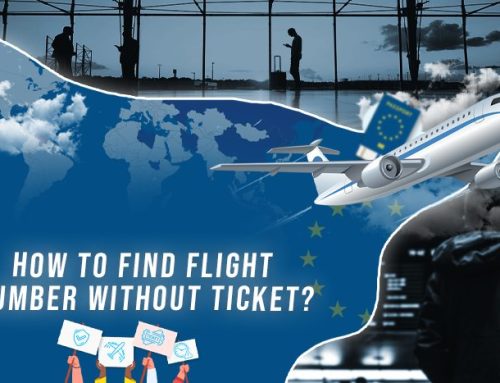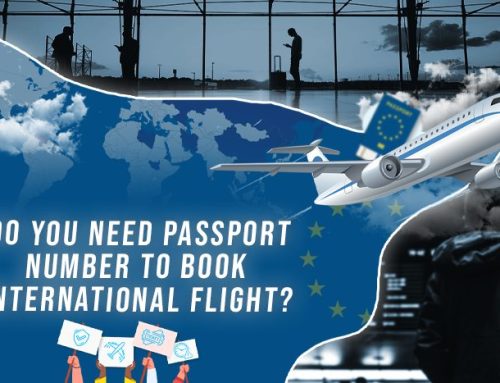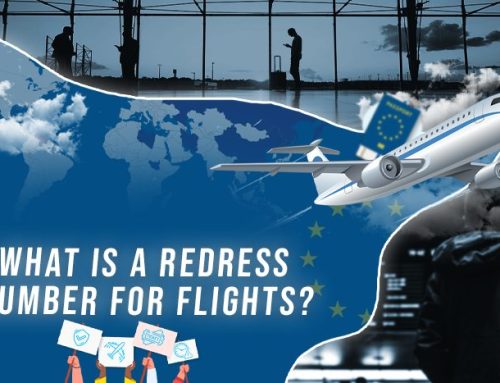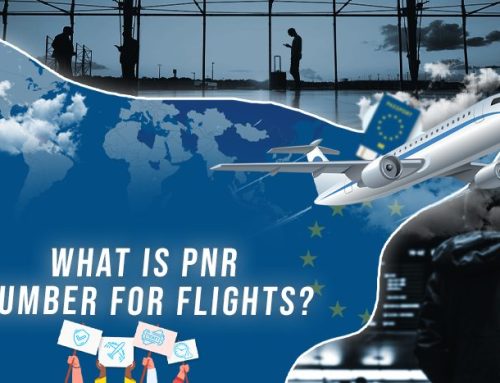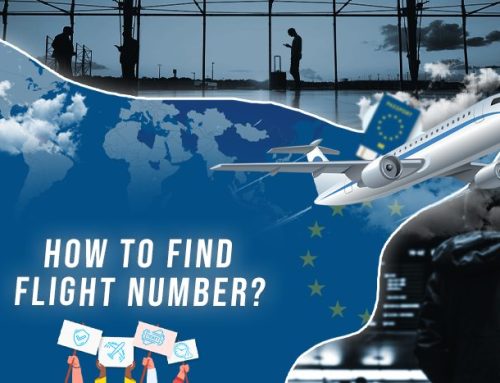Bad weather like hurricanes is usually enough to cancel a flight, but what happens if you encounter one when you’re already in the air? Are airplanes able to fly over hurricanes? And moreover, should they? The short answer is that airplanes can fly over hurricanes, but just because they can, doesn’t mean that they should. Let’s discuss why.
Key Takeaways
- Commercial planes can technically fly above hurricanes due to their typical cruising altitudes, but it is not advisable or common practice. Safety is the foremost priority, and air traffic control will reroute flights to avoid hurricanes and ensure the well-being of passengers and crew.
- Hurricanes can have far-reaching effects on the atmosphere, including powerful updrafts and turbulence, posing risks to aircraft even at higher altitudes. It is safer for planes to steer clear of hurricane-affected areas to avoid potential hazards.
- Advanced weather monitoring equipment on airplanes allows pilots to navigate various weather conditions, including hurricanes. Collaborating with air traffic control and ground personnel enables the identification of the safest airspace to avoid the storm’s path.
- There are specialized storm chaser planes, mainly used by military and research agencies, that gather crucial data by flying directly into hurricanes. These missions contribute to improving hurricane forecasting and understanding, but they are not commercial passenger flights.
- Airlines take proactive measures during peak hurricane seasons in vulnerable regions to adjust flight paths and schedules, minimizing the risk of encountering adverse weather conditions and ensuring passenger safety. Passengers should trust and cooperate with airlines and flight crews during such situations.
Flying over Hurricanes
The average plane flies about 30,000 to 42,000 feet above the ground, which is above the height of a hurricane. Hurricanes typically start brewing about 20,000 to 30,000 feet above the ground, so technically, as long as above the hurricane, a plane could travel over it.
Fortunately, if there is a hurricane, air traffic control will re-route planes to avoid them as a safety precaution. On the ground, flights have already been canceled, and airports are closed or put on an emergency alert. There is no place for a plane to land safely, so there is no reason a plane should fly over or through a hurricane.
Planes are constructed to withstand a lot of pressure and damage, but if something were to happen to the plane, it would be difficult to navigate in the case of an emergency. It is in the best interest of the airline, cabin crew, and passengers to avoid flying over hurricanes.
How to Avoid Hurricanes While Flying
The airplane has a lot of equipment that can help navigate all sorts of weather conditions, including hurricanes. They can tell the size, speed and help predict the path of a hurricane, helping the plane avoid the inclement weather. Additionally, they can discuss with air traffic control and other personnel on the ground to identify the safest airspace to travel in to avoid the hurricane.
If you get too close to the hurricane, you may notice more turbulence or the plane veering from the course to avoid it. In most cases, you may not even notice you are flying over or away from a hurricane until after the fact.
Are There Planes That Track Hurricanes?
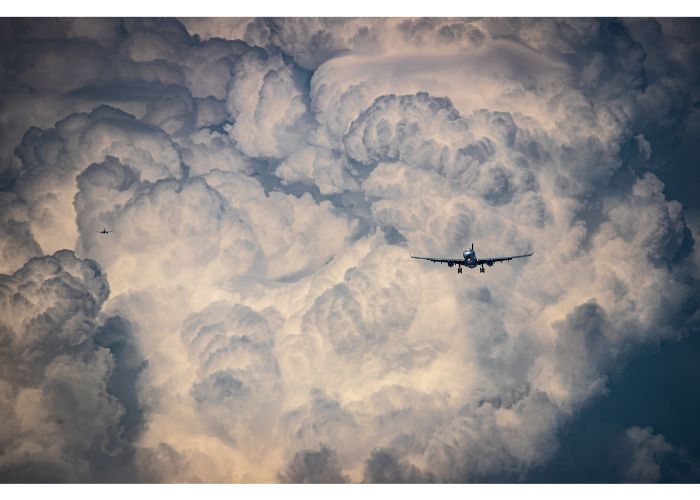
There are some storm chaser planes that run toward hurricanes instead of away from them. These are not commercial passenger jets. Instead, they are highly specialized planes designed to move quickly and withstand inclement weather while doing it. In some countries, these planes are part of the military force.
These planes capture data that can tell us a lot about hurricanes, and they fly directly into the eye of the storm to get everything they can. These impressive planes are not scared to face a hurricane, and they have lived to tell the tale many times.
Conclusion
Planes are designed to do a lot of things, so technically they can fly over a hurricane. But the real question is, should they? The answer is no. Planes should not fly over a hurricane unless they cannot avoid it, just to be safe. There are select military planes that are designed to take on hurricanes, but the average commercial jet is not equipped to do so. You’ll have to enjoy the hurricane from a safe distance while flying.
Frequently Asked Questions
-
Are commercial airlines equipped with technology to detect and avoid hurricanes during flights?
Yes, commercial airlines are equipped with advanced weather monitoring technology, including radar and satellite systems, to detect and track weather patterns, including hurricanes. This information allows pilots and air traffic controllers to plan routes that steer clear of potential hazardous weather conditions, ensuring the safety of passengers and crew.
-
What measures do airlines take to ensure passenger safety and prevent flights from encountering hurricanes?
Airlines prioritize passenger safety above all else and have well-established procedures to monitor weather conditions. They collaborate with meteorologists and air traffic control to obtain real-time weather updates and forecasts. Based on this information, airlines proactively plan flight paths that avoid areas affected by hurricanes. If a hurricane poses a threat to a flight’s scheduled route, the airline may delay or reroute the flight to a safer path.
-
Do hurricanes ever cause flight disruptions, even if the aircraft doesn’t fly directly over the storm?
Yes, hurricanes can cause flight disruptions even if the aircraft doesn’t fly directly over the storm. The powerful winds and turbulence associated with hurricanes can extend far beyond the storm’s center, affecting the surrounding airspace. Air traffic control may implement restrictions or reroute flights to avoid turbulence and ensure safe travel.
-
Are there any regions where hurricanes are more common, and do airlines have specific guidelines for operating in such areas during hurricane seasons?
Yes, there are regions where hurricanes are more common, such as the Atlantic and Pacific hurricane basins. During hurricane seasons, airlines operating in these regions have specific guidelines and protocols in place to address potential weather-related disruptions. They closely monitor weather updates and collaborate with meteorological agencies to make informed decisions regarding flight planning and operations.
-
How do storm chaser planes gather data from hurricanes, and how does this information contribute to better hurricane forecasting and preparedness?
Storm chaser planes are specialized aircraft designed to fly directly into hurricanes to gather crucial data. They are equipped with advanced weather instruments and sensors to measure various parameters like wind speed, air pressure, temperature, and humidity within the storm. This data is transmitted back to meteorological agencies and used to improve hurricane forecasting models. Better forecasts lead to more accurate predictions of a storm’s intensity, track, and potential impact, enabling communities to prepare and respond effectively to potential threats.



